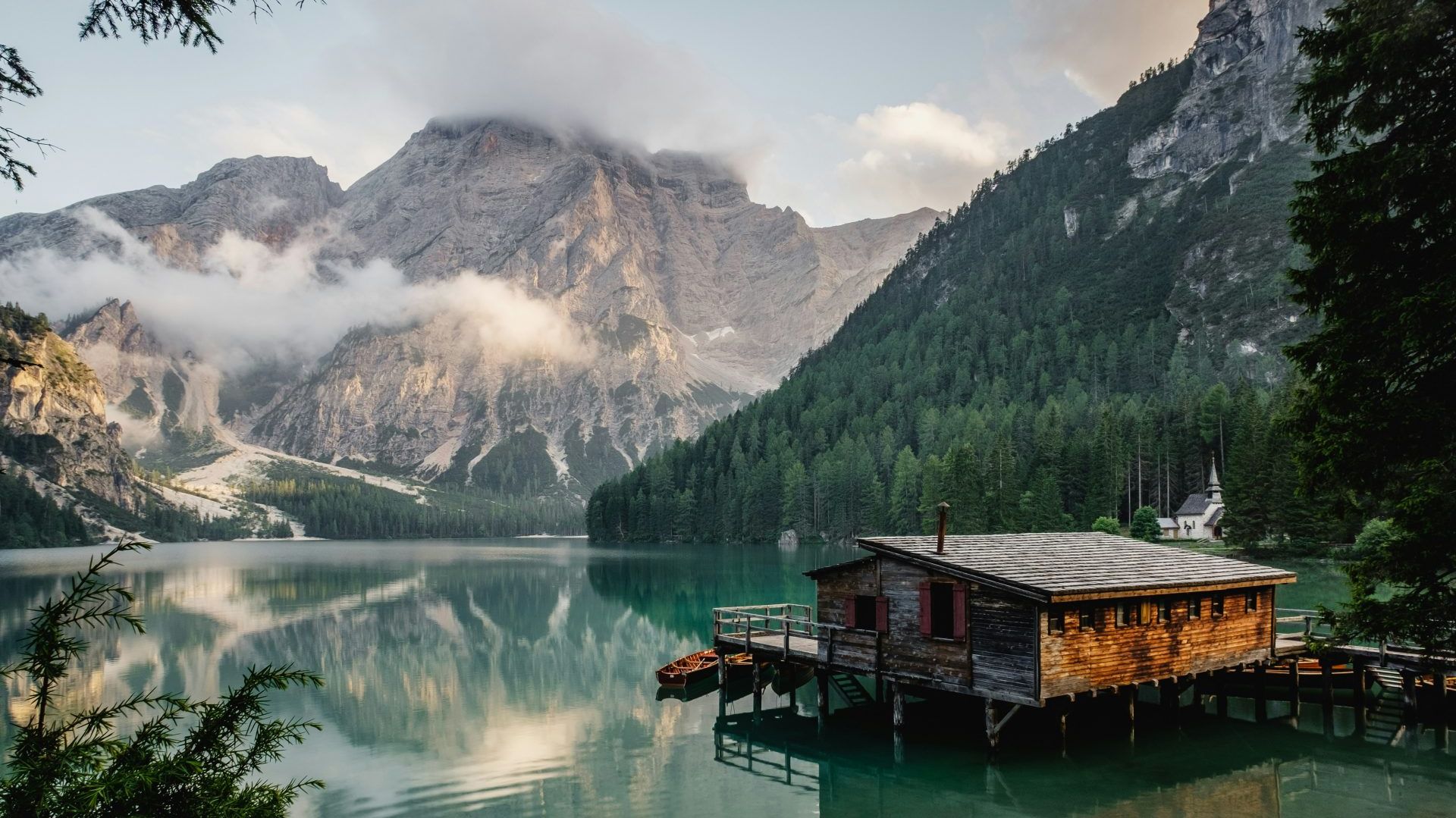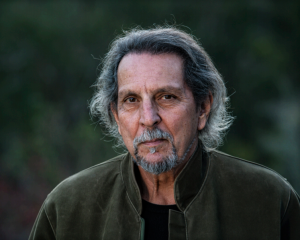Environmental philosopher: ‘There are only two choices: death or a symbiotic relationship with the world’
-
 Afbeelding ter illustratie. Foto: Luca Bravo via Unsplash
Afbeelding ter illustratie. Foto: Luca Bravo via Unsplash
A future in which we strive for life instead of death, a future that is worth living – that is what Australian environmental philosopher Glenn Albrecht wants us to achieve. But to get there, we must reset our emotional compass and see beyond all distractions, Albrecht claims.
In the last centuries, our planet has changed. The consequences of the climate crisis, species loss, and environmental destruction have been made visible by scientists. But according to Glenn Albrecht, one of the most influential contemporary environmental philosophers, it is not only the world around us that is changing but also the world within us. According to him, the decay of planet Earth is making us, humans all over the world, feel new emotions.
In his latest book Earth Emotions, Albrecht gives new words to the feelings we have for our planet. With these new words, he hopes to contribute to a hopeful future and to a solution to the climate crisis. Tuesday evening, Albrecht will share his ideas and visions at a Radboud Reflects event.
From extreme heatwaves, floods, and the rapid decline of ecosystems to freshwater shortages and species extinction – the destruction of the environment is visible everywhere. The world is changing. In your latest book “Earth Emotions”, you argue that these drastic environmental changes make us feel very particular emotions. What do you mean by that?
Albrecht: ‘The health of ecosystems and the human health are intimately related. Over the last centuries, we humans have created this horrendous mess for ourselves where the relationship between the state of Earth and the state of our psyche and emotional well-being is at odds. Due to climate change, mining, and other major disturbances, the very things that we love about where we live are being taken away from us.’

‘For example, the people living in New South Wales (Australia, ed.) used to have a view that resembled the landscape of Tuscany. But when the largest black coal port of the Southern hemisphere came to the region, their beloved view disappeared.’
‘Now, they are sitting in their gardens while looking at a flat top mesa of mining spoil and waste dust. They are looking at a hellscape. Due to the environmental destruction of their homes, these people are experiencing an Earth Emotion which I call solastalgia, the homesickness you have when you are still at home, but your home is leaving you.’
What is the importance of terms that describe new emotions people are feeling in their relationship with the Earth?
‘We need a new language because our old one is not fit to deal with the force of the current environmental changes that are so rapid, powerful, and global. For the last two or three decades we have used terms like ‘sustainability’ in the context of environmental changes. But those terms have made absolutely no difference for our future. They have not led us to new ways or changed our behaviour.’
‘Instead, we are continuing along the same path we were on already, the path to a disastrous future where we can see the unfolding climate chaos and multiple other negative global-scale impacts. So, terms like ‘sustainability’ do not hold any power. They have been sucked up by the vortex of consumer capitalism and been rendered useless.’
‘To me, this indicates that we need a new language, one that can critique the status quo and move on. In my view, we can challenge our system through language – with a language of emotions that marketers and advertisers can’t cut matches with.’
Despite feeling emotions like solastalgia, most of humankind keeps exploiting nature. So, there seems to be a paradox here: On one hand, people do care about the environment, and on the other hand, people keep destroying it. How do you explain this?
‘It is true; we do have these feelings for Earth, yet we are destroying it. That is because we are being distracted. Nowadays, we live in a world of lies. Advertising and marketing are heroic in their efforts to keep us distracted from climate change and its facts.’
‘We can use algae to produce new substances that can be modelled and shaped into furniture’
‘We live in a society that is geared up to stop us from thinking about why we are feeling perpetually unhappy or why a level of discontent is escalating. But very recently, we have entered a stage where few people, like Greta Thunberg, are calling out these distractions. Together with other activists, she is very bravely confronting this contradiction between knowing about climate chaos and continuing to live life as if there was no reason to change.’
Environmental philosophers argue that we currently live in a time that is characterized by the destructive human impact on Earth. You argue that we must leave this time behind and enter a new time: the Symbiocene. A future where people live together with all other life and enter a symbiotic relationship with the world. How can we get to this point?
‘The world and its symbiotic coexistence were here before humans arrived as a species. Also, different cultures have had this symbiotic relationship with the rest of life. The Indigenous people of Australia had it until 1788 and lost it so rapidly under colonialization. That story is repeated all over the world. The colonial project (meaning the ongoing colonial occupation and exploitation of Indigenous peoples, lands and waters, ed.) has shaped and changed the structure of the whole world.’

‘Our new symbiotic relationship must not be a return to the past, as we cannot return to an earlier state of culture. We cannot become hunters and gatherers again. We will not give up on our project of humanity as a technologically drives species. But what we can do is begin to show that we can reconnect to life through using our technology and intelligence.’
‘For example, we can use bacteria to produce electricity. We can produce cellulose with hemp, bamboo, or wheat instead of cutting down trees. We can produce mozzarella cheese and meat without cows. We can use algae to produce new substances that can be modelled and shaped into furniture. We can make building materials out of fungi.’
‘It’s a pretty big task, but I can’t wait for it to get cracking’
‘We can create new biotechnologies that allow us to achieve fantastic results. That is if we point our emotional compass in the right direction first. This right direction is not extractive and toxic like black coal ports. It is life-affirming and reconnects us to life. It is going to help us to assimilate back into the cycles of life, and make us feel an oneness between ourselves and the rest of life.’
‘With our emotional compass reset, we can start doing things with a high degree of motivation and creativity and that I call radical – a radical anticipation of a future that is going to be worth living.’
Yet, the current exploitative attitude towards nature, the workings of consumer capitalism, and the ticking climate clock could make one doubt whether we will indeed be able to make our way to the Symbiocene on time. What gives you faith that we will be able to get there, nonetheless?
‘Of course, the rate of change that is needed is going to be dramatic, but I think the evidence is overwhelming: we can change. But we need to do it rapidly. Really, there are only two choices that we have: sickness, misery and leading to death or the Symbiocene. Well, I know which one I am going to put my effort into.’
‘We can and must take action to create a new future by bringing our emotions, science, and technology into alignment. This future, this good future is the Symbiocene, and I will be working on this for the birds and for my granddaughter.’
‘It is a pretty big task, but I can’t wait for it to get cracking. I am a bit impatient, really. And I can’t understand what is holding everyone else up.’
On Tuesday Glenn Albrecht will share his vision on ‘Earth Emotions’ and the Symbiocene during a Radboud Reflects lecture at the Collegezalencomplex. For students and Radboud Reflects subscribers, the admittance is free. The lecture starts at 20.00h. More information can be found online.



